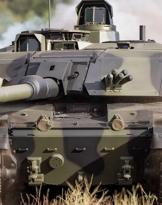As widely emphasized in recent days by the various Italian and international newspapers, the Latin American country currently retains the primacy of importer of Russian-made weapons.
In 2005, the Venezuelan Army received 100.000 Kalashnikov AK-103 machine guns which replaced the Belgian-origin rifles used since the 50s (FAL, ed). Between 2006 and 2009, the Russian supply of the Russian Mi-26, Mi-35 and Mi-17 helicopters of 53 vehicles, 24 Sukhoi Su-30MK2 fighters for 1.500 million dollars and the Tor-M1 anti-aircraft defense, for a worth 290 million dollars.
Five years ago, the agreement for a loan to the South American country of 2.200 million dollars, for the purchase of Russian technical equipment, namely 11 Pechora-2M anti-aircraft defense complexes, 2 S-300VM complexes and 3 Buk-M2EK, 92 T-72B1V tanks, BM-21 Grad rocket launchers and BM-30 Smerch.
Before his death, Venezuelan President Hugo Chavez who preceded the current Nicolas Maduro, together with Vladimiri Putin, signed 31 agreements and contracts for cooperation between Venezuela and Russia. The objective of these agreements varies from the exploitation of Venezuela's main energy resource, oil (Faja Petrolifera del Orinoco), to the creation of an aeronautical complex (51% Venezuelan capital and 49% Russian) to renovate the Venezuelan fleet and others. countries of Latin America, to the development of industrial projects, including a project for the construction of the first nuclear power plant in Venezuela.
These agreements, in addition to those of a military nature, include energy, scientific, technological, humanitarian, educational, cultural, agricultural, and transport and fishing industry cooperation.
Their strategic objective is an expression of the new geopolitical and geostrategic interests, useful to Russia in countering the economic influences of the United States and the growing influence of China in the area.
Maria Grazia Labellarte
Source: venezueladefensa












